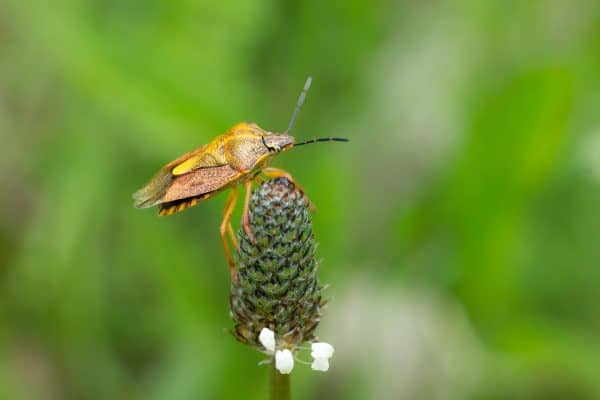As obligate carnivores, ferrets can eat a wide range of disgusting things, including insects. Their bodies are specifically made for whole prey so they can eat almost any living being they typically find in the wild that’s smaller than them. The reason why you won’t see ferrets getting insects as treats in captivity is thatmany people find this very gross.
However, if your ferret turns the house completely upside down, there’s a big chance that’s because it spotted a fly. They love hunting for them and will go to great lengths to catch it. This is a great sport for them and they absolutely love the chase. While you might be grossed out by insects, letting your ferret eat a spider it found is completely safe.
Do ferrets eat bugs? How About Other Insects?

Ferrets have short digestive tracks and they absorb nutrients very inefficiently. More than that, there’s only so much food they can eat at once. This is why it’s extremely hard for a ferret to gain weight. They’re excellent self-regulators and would rather stash the food than over-eat and get sick. This means that they need to eat only foods that can offer as many nutrients as possible.
Raw meat is the best way to achieve that and cooked meat is a good option as well. While bugs can be nutritious in their own ways, they’re not as efficient as other prey. This means you will need to make sure that the ferret’s main meals consist of high-quality meat or kibble. And if it catches an insect, there’s no need to worry unless you notice that the insect is actually dangerous.
If you want to use insects as a serious food source, you’ll need to go to an exotic food shop that specifically raises small animals and insects for various exotic creatures. This means that giving your ferret a spider you found in the garden is not a good idea. The insect might have gotten sprayed with something toxic while you were spraying the garden.
Live prey is also highly recommended. And while mice and rats can cause some serious scratches and need to be killed before feeding, insects are much more entertaining alive than dead. The ferret will immediately jump into its natural instincts and start chasing the bug all over the room.
You can feed your ferret spiders, beetles, flies, etc. Just make sure they’re small enough for it and that they haven’t been sprayed with anything. The best way to ensure that is by getting them from a reliable supplier. And if your ferret needs supplements, you can dust the insect before giving it to the ferret.
Can insects be used as treats for ferrets?
Insects shouldn’t be used as the main meal of a ferret as they don’t contain everything your ferret needs. And they need to make the best of their meals to be able to absorb all the nutrients they need during the day. This means that insects should only be used as treats and only a few times a week.
Crickets are often used in zoos as well. This is because of how many nutrients they have and sometimes they’re dusted in supplements. But this should only be done after you have spoken to your vet and it agrees with what your ferret needs.
If you find a ferret-safe insect that your ferret absolutely loves, then you can use it as a treat during training sessions. It can also be used as an exercise for the ferret to bring it back to its wild roots and let it enjoy a good chase.
What kind of diet is recommended for ferrets?
Obligate carnivores need meat and water. Nothing else. If you’re letting your ferret eat the food its body was made for, you will notice how extremely easy maintaining a ferret can be. A raw diet with the occasional whole prey is the most recommended diet for any ferret, even the stubborn ones that have been raised on kibble.
The only problem with kibble is that many people opt for the cheapest they can find. But despite the fact that the label says “ferret food”, this kibble can actually be harmful to your ferret. This is because some greedy companies try cutting as many corners as possible to make the making process as cheap as possible.
This means that they often add lots of corn starch, dead-on-arrival animals, etc and at the end, they just add some supplements and color. Make sure you’re only buying from good companies that don’t play with your ferret’s life just to make a cheaper product. If you have the right kibble, ferrets can thrive on it all their lives with the occasional raw meat treat.
